Twenty years ago, Canadian indie rock collective Broken Social Scene released their seminal sophomore record YOU FORGOT IT IN PEOPLE, a collection of songs by some of the greatest musicians in the Toronto area in the early 2000s. The record formed out of the live shows Kevin Drew and Brendan Canning conceived while promoting Broken Social Scene’s first record, FEEL GOOD LOST, where the Canadian indie rock’s Lennon and McCartney invited their friends in the local music scene to perform on stage with them.
These live shows, a far cry from the chilled-out instrumentals of FEEL GOOD LOST, became an outlet for this scrappy band of misfits to experiment musically with their friends. It was the beginning of the band becoming a revolving door for supremely talented humans to a lineup that is ever-changing. The album received five-star ratings from several Canadian publications upon its release, and sold out of the initial run of discs within the first month. YOU FORGOT IT IN PEOPLE is, arguably, the best record of the 2000s, and defines the very band that created it.
—
YOU FORGOT IT IN PEOPLE entered my life in the spring of 2005. At that point, I had probably sold 50 copies of it at the record store where I was working, always hoping someone would sell it back so I could finally hear what all of the fuss was about. I had no idea in those days that it’s a record that I would still be listening to many years later.
One evening, I sat next to my friend Mandy on a worn-out couch in her parent’s rumpus room. The seat sagged, so we were smooshed together no matter how we sat; our knees touched as we held up her laptop back in those early days of social media.
“Have you listened to my new profile song yet?” she asked.
She clicked on the music player displayed on her MySpace profile, and out of the laptop’s boxy speakers came the sound of a lone banjo plucked over a delayed beat. An elfish voice, anxious and strained, began to sing. “Used to be one of the rotten ones, and I liked you for that / Now you’re all gone, got your makeup on, and you’re not coming back / Can’t ‘cha come back?”
We sat in silence as the song went on, her eyes wide, waiting for a hint of approval from me. She was in that heightened anticipation that the dorkiest of music nerds feel when you play a song defining your whole world at that moment for someone whose life it hadn’t yet touched. I was intrigued by those strange sounds, but the pressure for me to be impressed was too much. I just nodded and smiled.
As I lay emotionally shattered in the backseat of a car driving home from Columbia, Missouri some weeks later, the album solidified as the soundtrack of my life. My ex, my pal, and I drove two hours away to see Spoon at a venue called The Blue Note. I purchased YOU FORGOT IT IN PEOPLE on a whim at a record store around the corner from the venue. On our walk to the show, my then-partner thanked me for the ride but informed me that she was going to be meeting her long-distance boyfriend inside. It’s as if fate stepped in and handed me the perfect album at the moment I was going to need it the most. I made our friend play it on a loop as he drove us back to St. Louis later that night so they couldn’t hear me sobbing.
—
YOU FORGOT IT IN PEOPLE is a record best heard through headphones.
That can be said about most albums, sure, but denying yourself at least one listen of this one would be denying yourself the intimate touches sprinkled throughout the album. Producer David Newfield was always recording, even when the band was messing around and toying with new ideas. There’s a great example in the Andrew Whiteman track “Looks Just Like the Sun.” The soothing, almost bossa nova groove is peppered with the occasional count-in or studio session comment. These moments make the record feel intimate and personal. You’re in the studio listening to layer after layer of heavenly backing vocals, a guitar strum, bass lines, and chill beats. Newfield had to know he was recording something special as he took this juxtaposition of styles from one song to the next and formed something brilliantly cohesive.
—
At Lollapalooza 2006, every member from Broken Social Scene up to that point was live on stage together for the first time. I’d already seen Stars, Feist, and Metric play that weekend but hadn’t expected to see everyone who’d worked on that album I’d become so quickly obsessed with, some just there to run out and sing backup on “Anthems for a Seventeen Year-Old Girl” or to provide handclaps on “Stars And Sons.” It was a historical moment I can’t believe I witnessed.
—
In the summer of 2007, I lay on the floor of my room after having taken a substance, my head between both speakers listening to “Cause = Time.” I closed my eyes and watched colorful lines make impossible patterns in my brain.
Music had never sounded so expansive as it did in that moment. I found myself in a state of existence that made sense. My thoughts were going a mile a minute. I didn’t feel like dying anymore. I came to the realization that I wasn’t happy with where my life was going. I’d just dropped out of college, I was living check to check with my measly retail salary, and I was dating someone who made me miserable. During the crescendo, as the drums crashed and guitars wailed, tears streamed down my face. I sat up, looked at the person I’d been dating for the past year, and said, “I think we should break up.”
She said, “I knew we were going to break up eventually, but I didn’t think you’d be the one to do it!” She stormed out of my place and drove home. I would find out years later that she was still tripping pretty hard. I did apologize.
—
The last time I saw Broken Social Scene was in September 2017 at The Pageant in St. Louis. I’d recently come to terms with being pansexual but was still trying to figure out how to come out as pan to my significant other. I’d been bottling up my identity the past year, trying to figure out if that was the true me, and I was exhausted.
I brought along my friend Dave to the show, a kind and jolly man who looked like Gimli from The Lord of the Rings if he was really tall. I’d ask him if he minded sitting during the set—I have some bone disorders, and it’s difficult for me to stand through an entire concert the older I get. We found a nice spot with a good view of the stage, but when Broken Social Scene kicked off their set with “KC Accidental,” I grabbed Dave’s hand and ran us down to the pit. I had to be in the middle of that energy to recharge…
I felt okay again.
I didn’t want to die.
I was there with my friend, a bond that felt like that of this brilliant collection of humans rocking out in front of us. It was a glorious show.
On our way out of the venue, I accidentally bumped into a guy talking to some friends. He turned around, and it was none other than Brendan Canning, fresh off the encore and already out being social. I reacted in the worst way possible by yelling “HOLY SHIT” right into his face. The poor guy looked stunned, so I quickly composed myself and stuck out my hand. We shook hands, and I said, “Sorry. Uh, that was a fantastic set. Thank you,” before quickly running away.
When I got home from the show, I started sketching an idea for a comic about my love for YOU FORGOT IT IN PEOPLE. I never made it, but it would have been called Broken Social Zine.



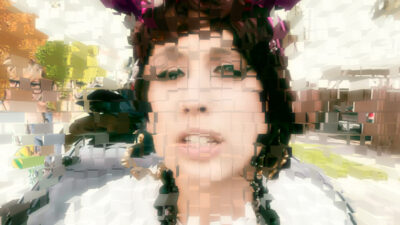

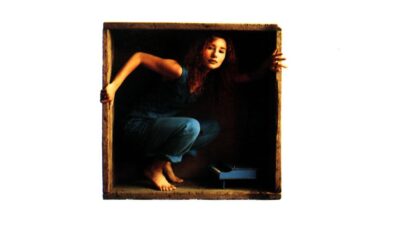
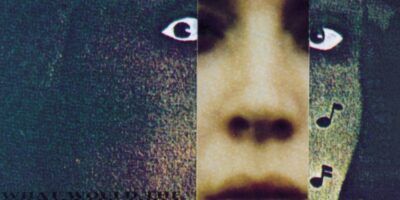


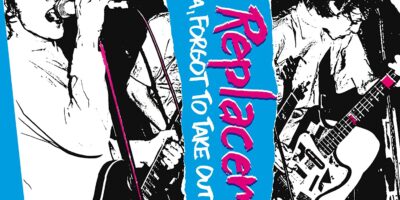

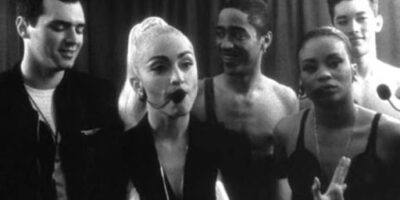



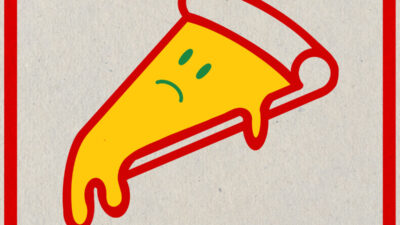
Comments